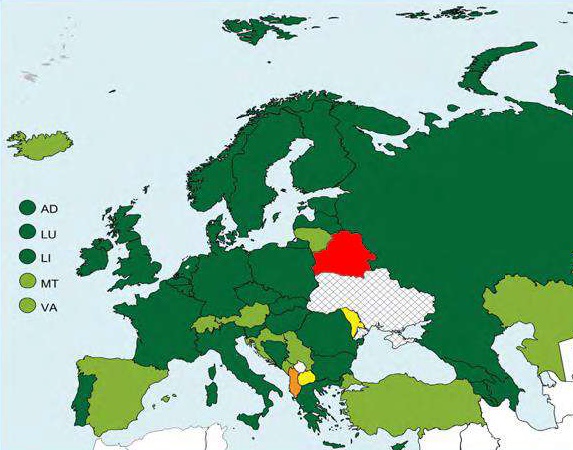Belarusian Independent Bologna Committee (BIBC) and Ad Hoc Commission of Belarusian National Platform of the Eastern Partnership Civil Society Forum (EaP CSF) continue to monitor the implementation of the EHEA tools in the higher education system by Belarusian authorities.
In 2018 Belarusian Ministry of Education was able to make a number of milestone decisions in pursuance of Work Plan implementation, which had been postponed for a long time pending the approval of new Education Code. In particular, this is linked to slowly expanding academic autonomy of Belarusian higher education institutions (Educational Standards_3+).
However, the Work Plan 2018 tasks and targets were not ambitious and could not instigate significant reformof the higher education system. Despite this fact, even the modest tasks were not implemented in full. At the same time, it is important to note the implemenation of Bologna tools and values has not (yet) been supported within the highest political circles. President Alexander Lukashenko has repeatedly expressed doubts about benefits of Bologna process for Belarusian higher education.
The 2018 Work Plan implementation did not require amending legislation in general and still number of tasks remained to be done. In particular, the provisions on Belarusian education system transparency (Launching the information Internet portal/website raising awareness of a wide scope of stakeholders about the processes of the higher education system in the Republic of Belarus development and Bologna tools implementation; launching English language version of Belarus-ENIC website). The low level of transparency does not allow for obtaining the information on implementation of some of the 2018 Work Plan provisions. There is no publicly available information, or it is incomplete, or it is published with delays. Thus, transparency remains a challenge to which Belarusian higher education system is not able to answer yet.
Furthermore, Bologna reforms envisaged by Strategic Action Plan will require amendments to the Education Code. However, according to the Decree of the President of the Republic of Belarus from 4 January 2019 “On adopting the plan for preparing bills in 2019”, the adoption of the new Education Code is not listed in the legislative plan. In addition,there is also information from the Commission for education, culture, and science of the National Assembly’s House of Representatives that draft Education Code has not been passed onto them for review so far. As a result, the lack of legislative initiative can block the implementation of a number of Strategic plan provisions in the future.
The implementation of social dimension of higher education and fundamental academic values has not been reflected in Belarusian Ministry of Education plans in a way it was specified in Council of Europe Recommendations and EHEA Summits’ Communiqués.
The Belarusian government’s education policy aims at restructuring professional education by decreasing the higher education - proportion. However, this strategy doesn’t address the inclusiveness issues of higher education system. Higher education accessibility for underrepresented groups – will not? not improve and could even deteriorate due to removal of some of the old instruments enabling underrepresented groups to access higher education programmes. In addition, such approach is also not in compliance with the new European mechanisms of ensuring inclusivity.
The new annual Work Plans for implementing Strategic plan provisions should include detailed actions on Council of Europe Recommendations Rec/CM(2012)7 implementationt and introduce measurable indicators for increasing inclusiveness of Belarusian higher education.
READ THE FULL TEXT OF THE REPORT in English (PDF)


